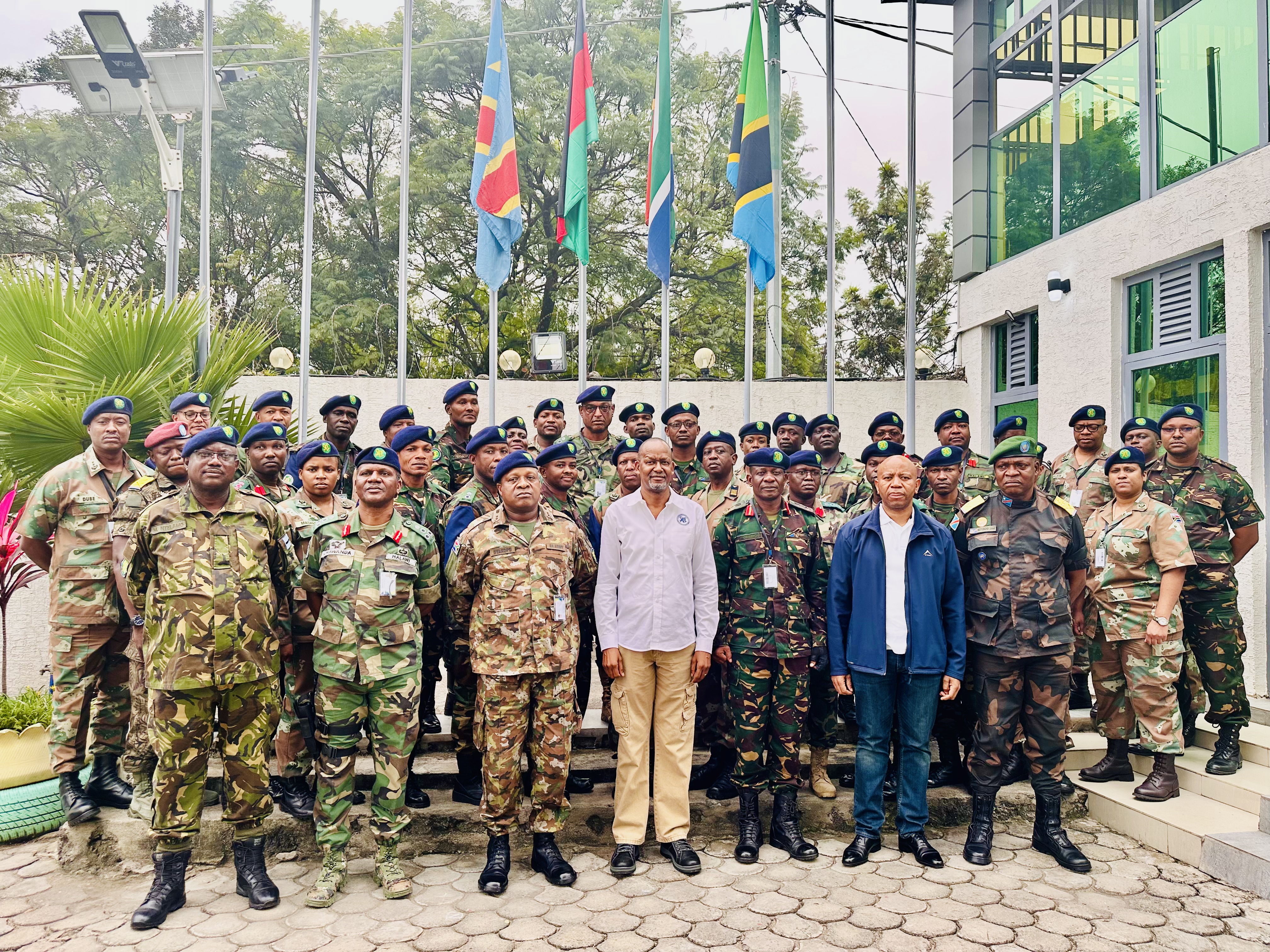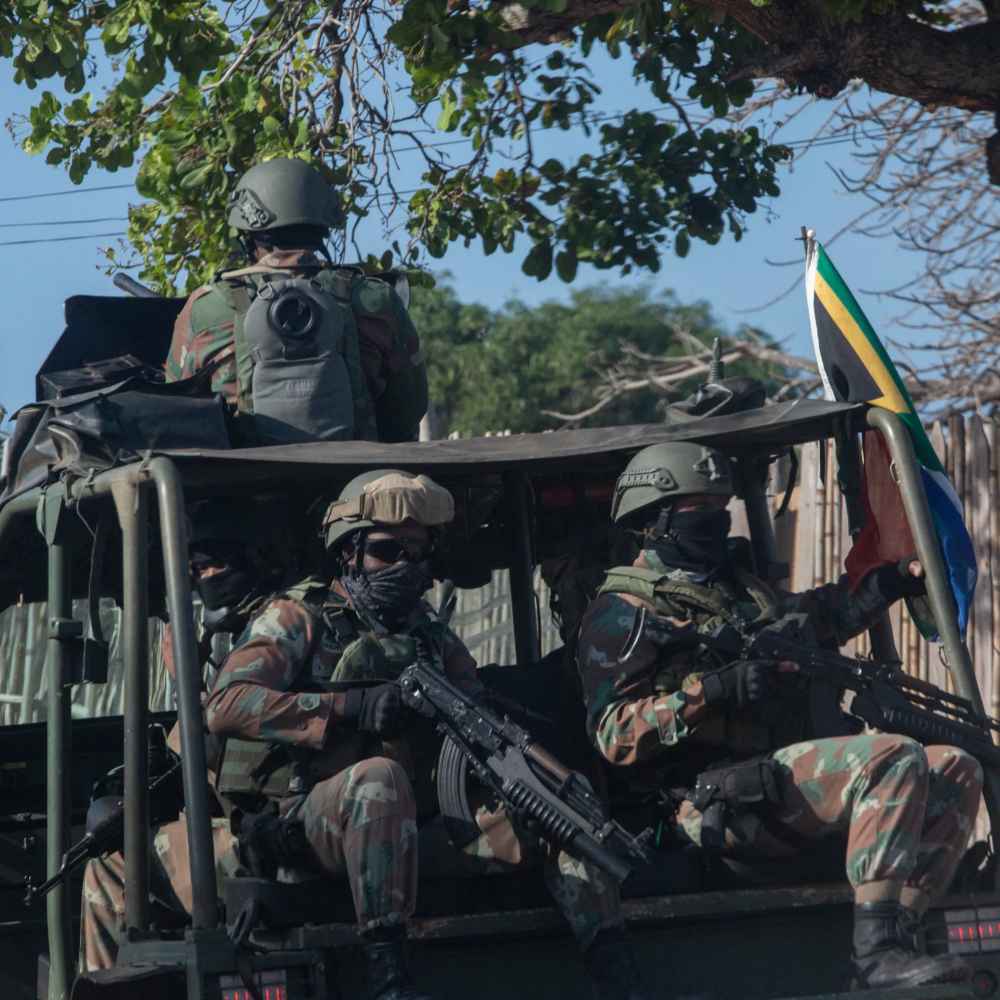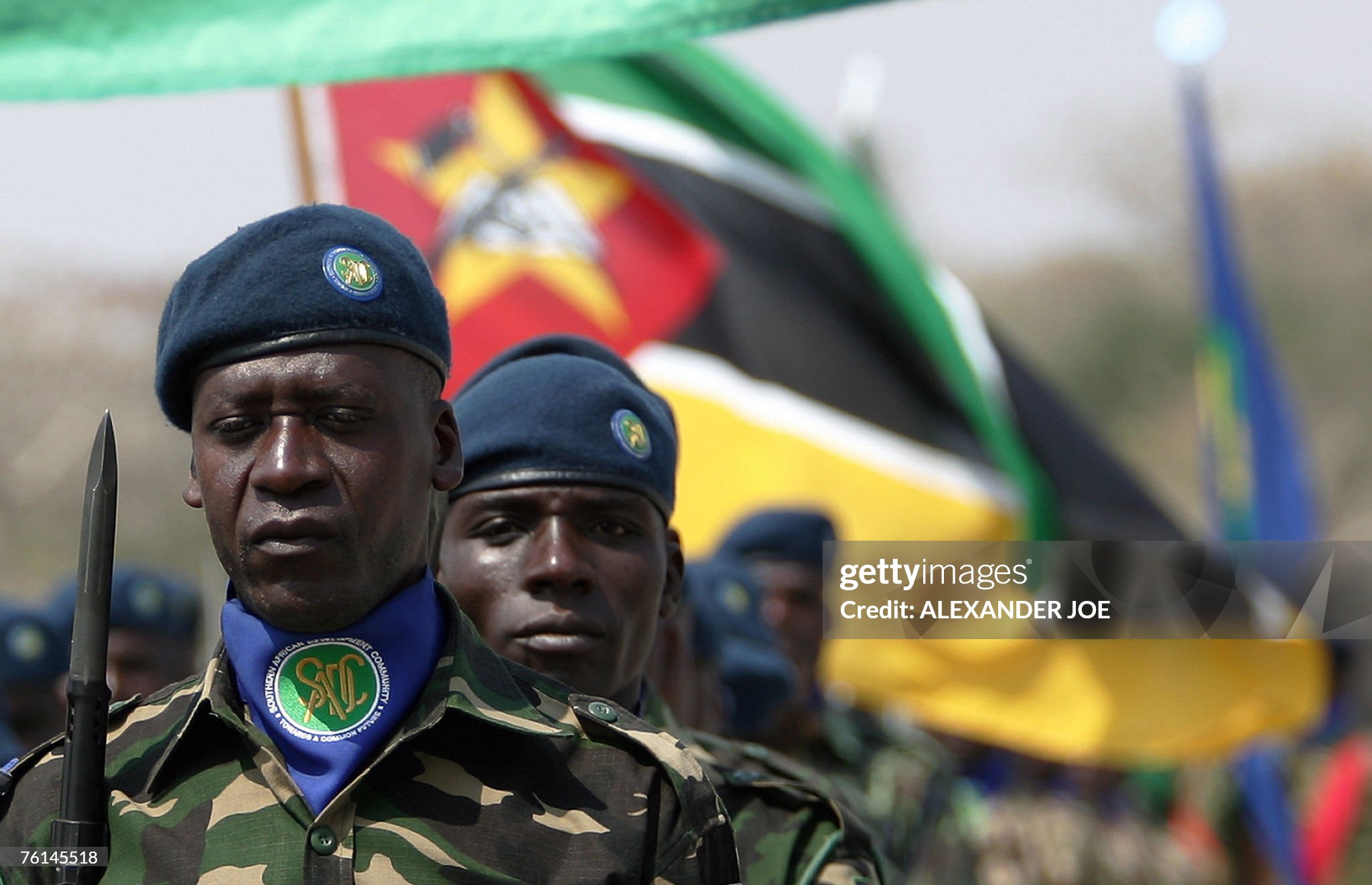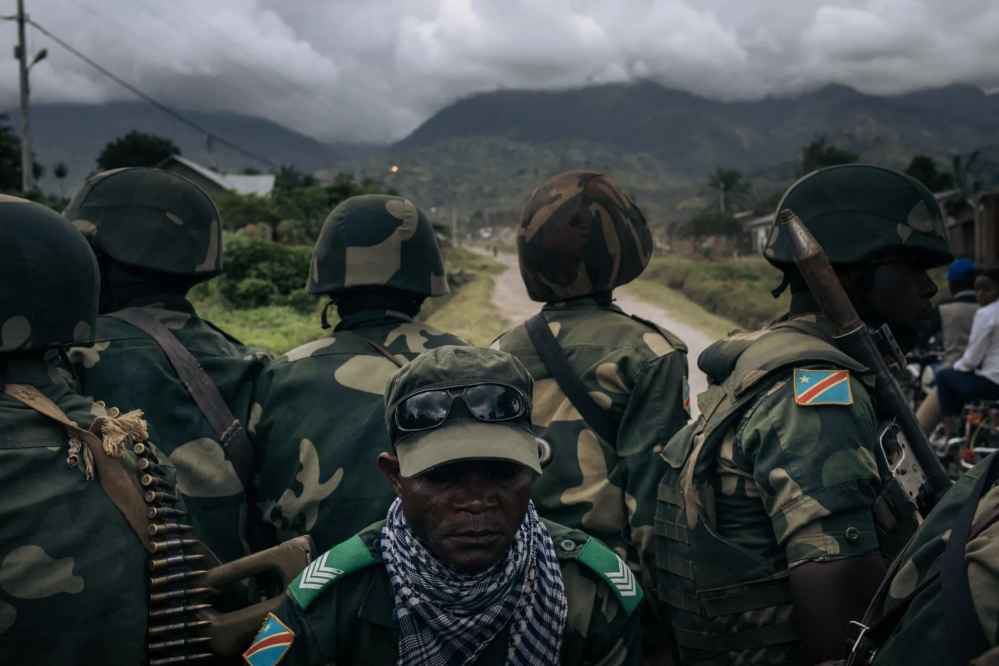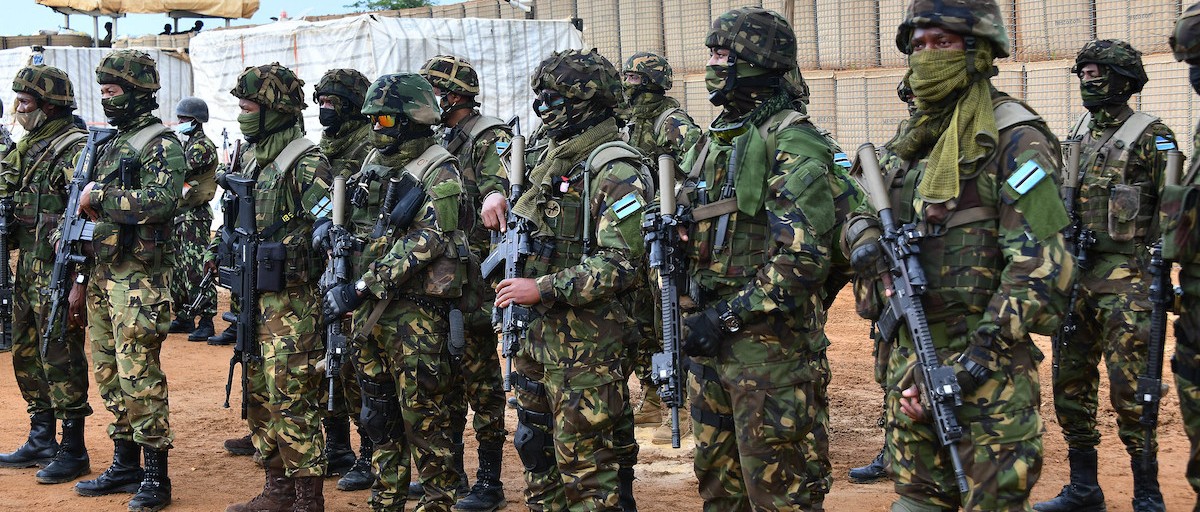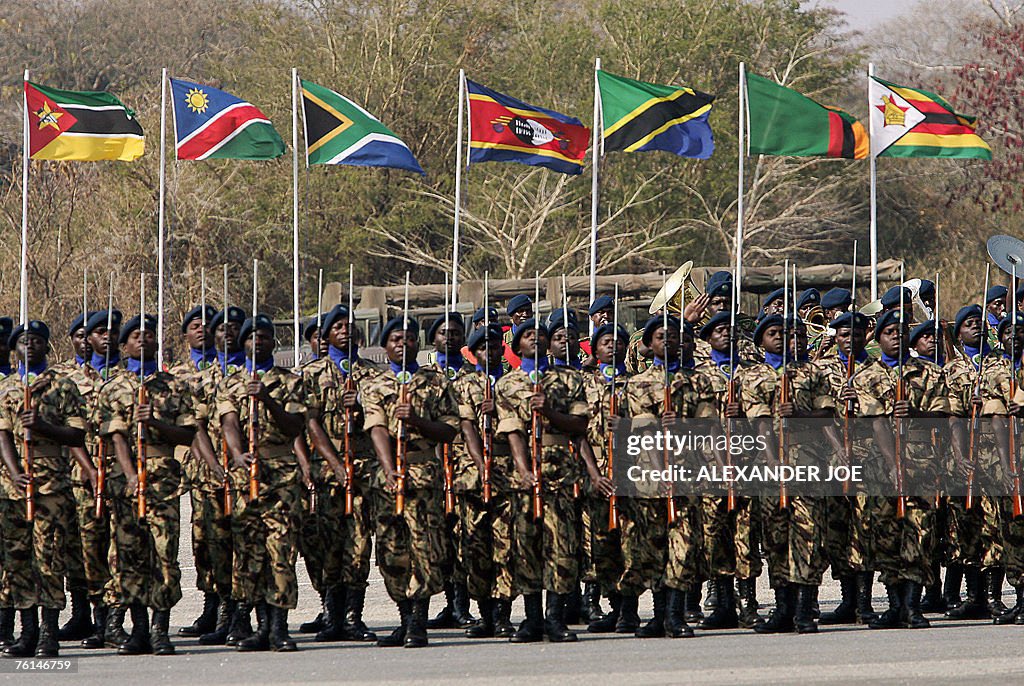International
Is AU really willing to finance ethnic cleansing in DRC?

The
International Panel of Eminent Personalities to Investigate the 1994 Genocide
against Tutsi in Rwanda and the Surrounding Events was created in 1998 by the
then Organization of African Unity (OAU), now African Union (AU), with a
mandate to investigate the 1994 Genocide against Tutsi in Rwanda and the
surrounding events in the great lakes region.
It was
part of efforts aimed at preventing further widespread of conflicts in the
great lakes region. The OAU appointed late Sir Quett Ketumile Masire, the former
President of Botswana, as Chairman of the team.
The
findings of the report traced the real causes of the Genocide against Tutsi
from the colonial era, and political turbulence of 1959 to the execution of the
genocide, highlighting the role of the international community and providing
recommendations to the OAU Secretariat. Some of the recommendations of the
report include establishing measures to prevent further genocides in Africa,
determining the intentions of perpetrators, and outlining the legal obligations
of states when genocide is declared.
Today,
shockingly, the stance of the AU on the escalating insecurity in the east of
the Democratic Republic of Congo goes against the recommendations made by the
OAU 26 years ago.
Inspite
of all the warnings against the decision, the AU Political Affairs Peace and
Security Council has endorsed the Southern African Development Community (SADC)
troop deployment to eastern DRC to support the Congolese army coalition to
fight M23 rebels. The Congolese army coalition has been involved in mass
killings and bombarding populated areas, targeting especially Congolese Tutsi
people.
In a
communique of the PSC meeting held on March 4, on consideration of the
situation in eastern DRC and the deployment of the Southern African Development
Community Mission in the DRC (SAMIDRC), the PSC requested the AU Commission,
working in close collaboration with SADC, to devise practical modalities of AU
support to SAMIDRC. But there is a problem since endorsing SAMIDRC, which operates
with the Congolese army, South African and Burundian soldiers, the FDLR
terrorist group, and a myriad of Congolese armed militias grouped into what is
called Wazalendo, contradicts the AU's programme, especially in conflict
resolution, peace and security.
Any AU
support to SAMIDRC undermines the peaceful settlement of the three decades long
crisis in DRC. SAMIDRC is fighting alongside a FARDC-led coalition which
includes the FDLR genocidal forces, ethnic driven Congolese armed groups allied
to FDLR under the umbrella of Wazalendo, and Burundian armed forces under a
bilateral arrangement, as well as eastern European mercenaries and Private
Military Security Companies including one associated with the former
Blackwater, as reported by the United Nations Group of Experts on DRC in
December 2023.
As
such, SAMIDRC as an offensive force in coalition with these elements cannot
substitute for a political process that has been blocked by the Congolese
government.
Why
then would, for example, the AU overlook the dangerous use of mercenaries –
something which was condemned by the OAU? The belligerent character of SAMIDRC,
especially its cooperation with FDLR and mercenaries only serves to worsen the
insecurity crisis in eastern DRC.
Worse
still, ethnic hatred in eastern DRC has reached tragic proportions.
The
Congolese army coalition in eastern DRC continues to target Congolese Tutsi,
Hema and Banyamulenge communities. Congolese Tutsi communities especially
continue to be subjected to widespread hate speech, discrimination, and
violence rooted in the genocide ideology kept alive by the FDLR and embraced by
the Congolese leadership and security apparatus.
There
is a historical context to everything that is happening today. The current
crisis in eastern DRC can be traced back 30 years ago when, in July 1994, the
defeated Rwandan genocidal government and forces that included the notorious
Interahamwe militia fled to the then Zaire. Instead of disarming the defeated
genocidal forces, the Zairean government supported by foreign actors helped the
genocidal forces to re-organize, and they are now known as the FDLR. The
genocidal militia has become a permanent threat to Rwanda and has exported
genocide ideology to DRC.
Their
presence in eastern DRC led to the persecution and displacement of hundreds of
thousands of members of the Congolese Tutsi community who fled to Rwanda and
other countries in the region. The FDLR is primarily motivated by its genocidal
anti-Tutsi agenda.
In
2013, the SADC led Force Intervention Brigade (FIB) established to fight
illegal armed groups in eastern DRC, selectively fought the M23 and refused to
tackle the FDLR and Uganda’s Allied Democratic Forces (ADF). Currently, SAMIDRC supports DRC's belligerent
posture, focusing on a military solution against the spirit of all regional
peace initiatives including the EAC-led Nairobi Process and the Angola-led
Luanda Process.
Worryingly,
but not surprisingly, sources have revealed how SAMIDRC, mainly composed of
South African forces, is driven more by economic interests than fighting
negative groups.
According
to the OAU recommendation report, determining the intention of perpetrators is
crucial for monitoring and preventing genocide. In eastern DRC, FDLR’s sole
intention is the continuation of the genocide against Tutsi, fuelled by
imported genocide ideology from Rwanda by the former armed forces of the
genocidal regime (ex-FAR) in Rwanda between 1990 and 1994 and their Interahamwe
militia.
By
endorsing SAMIDRC, a member of the Congolese army coalition, the AU is actually
supporting the ongoing acts of genocide driven and committed by local Congolese
armed groups, FDLR, and others, supported by SAMIDRC, against the Congolese
Tutsi communities.
The OAU's
1998 communiqué recommended the legal obligation of states when genocide is
declared. But the Congolese Tutsi, Banyamulenge and Hema communities continue
to see their people lynched in broad daylight, with impunity. The OAU report
identified the impunity of perpetrators of Tutsi massacres in 1959 as one of
the causes of the 1994 Genocide against the Tutsi in Rwanda.
But AU
member states remain silent in the face of the on ongoing heinous acts of
genocide in DRC.
By
endorsing SAMIDRC, which collaborates with armed groups involved in human
rights abuses targeting the Congolese Tutsi, the AU is repeating the same
mistake done in 1994 during the Genocide against the Tutsi in Rwanda, as
condemned in its report.
The AU
should invest in peace and security by emphasizing conflict resolution and
addressing the root causes of insecurity in the region, rather than supporting
military means.
With
all the information and evidence out there, will the AU later claim that it was
not aware of the situation and the real motivation of SAMIDRC forces?



